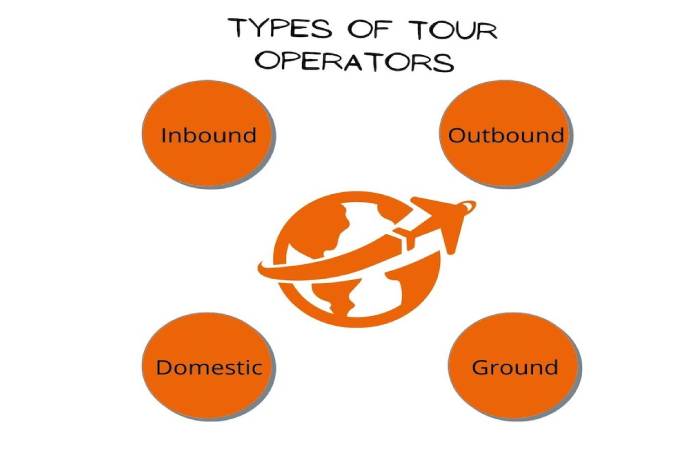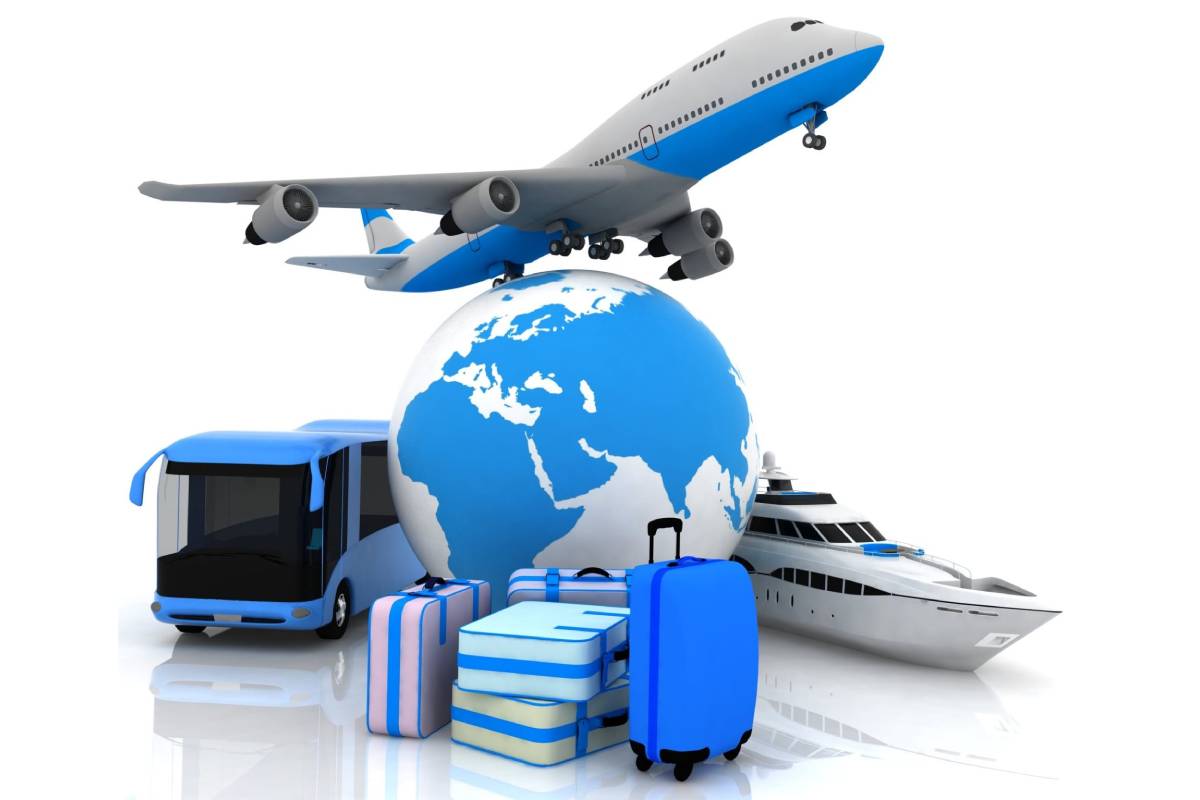Table of Contents
Tour Operator Definition
A tour operator is a company that offers services related to the tourism sector. The suppliers are in charge of supplying the tour operator, which is the one that offers the services they provide to sell them in various packages such as all-inclusive trips, excursions, or à la carte vacations.
Suppliers are made up of airlines, bus companies, travel guides, restaurants, bars, and hotels. The tour operators’ objectives are to offer clients packages that they could hardly get on their own at affordable prices.
What are the Differences Between Tour Operator and Tourist Agencies?
These are the main differences:
Tour Operator
- Tour operator act as intermediaries between the final consumer and the product (services or specific travel destinations).
- Some work with travel agencies and others take them out of the equation to focus solely on the final tourist.
Tourist Agencies
- Tourist agencies stick to their role as intermediaries between tour operators and end customers.
- They value the information they have provided them and report the package that meets users’ needs.
What does Tour Operator Offer?

This is what they mainly offer when it comes to having them:
- They are companies focused on facilitating trips, packages, and transportation appropriate to the tastes of tourists.
- They offer programmed plans not to have to worry about anything but enjoy themselves at the destination.
- The tourist chooses the desired destination. They will carry out the necessary steps to select the most outstanding flights, hotels, excursions, and the most exclusive diets, always according to the tourist’s tastes.
- When managed by tour operators, this way of travelling has the advantage that users can enjoy more affordable prices.
How to Choose an Optimal Tour Operator?
Take note of these tips:
- The first thing to save in mind is that there are a large number of companies that offer and manage this service. Therefore, you should do some initial research on them.
- Social networks and the different platforms on the internet facilitate obtaining informative data to form an opinion.
- Access their social networks, and observe the events, programs, and trips taking place for a while.
- You can also do it on their website, where the usual thing is that they publish the offers or the different options they offer to inform users. Observe the opinions that exist regarding their work.
- If tourists are happy with its management, they will express it on the internet and through its different platforms.
- Keep in mind that you will not find 100% positive opinions, but among the variety, you can guess how a tour operator takes care of its management and the treatment it has towards its end customers.
- Please consider the followers they have on their profiles (although this is not definitive because some can purchase), but there is enough interaction.
- In general, it can be seen that there is a positive attitude on the part of the end customers you can take note of it, and perhaps opt for this option.
Types of Tour Operator

There are five top categories of tour operators that you might reduction into inbound, outbound, domestic, receptive, and ground.
Let’s discover out which one of these five you reduce into.
1. Inbound Tour Operators (AKA Incoming Tour Operators)
Inbound tour operators bring tourists into a republic as a group or via individual tour packages. They handle all preparations in the host country, and the types of tours they curate are specifically for non-residents touring the country.
Let’s look at an example.
- If a collection of Italian tourists want to explore Germany, then the tour operator in Germany who handles all the tour arrangements is known as an inbound tour operator.
- So, inbound tour operators locally base and offer tours that cover their own country.
- Most inbound tour operators rent local travel agencies for airport pick-up and drop-off from companies with local hotels and businesses.
- And have key companies with other types of tour operators (who assistance they run tours on the ground).
2. Outbound Tour Operators
- Unlike inbound tour operators, outbound tour operators effort within their countries to take travellers to other countries.
- They are tour operators who market their trips for international destinations, either for commercial or leisure travel.
- For example, let’s say that a collection of Canadian tourists are preparing a trip to Italy. The tour company in Canada that grips all the ticket misgivings and hotel bookings is the outbound tour operator.
- To further simplify clothes, outbound tour operators design and package tours for travellers in their home republic to call an international destination.
- Now, most outbound tour operators select to specialize in specific destinations: either a goal that is “trending” or one in which they have specific know-how and delivery partners.
- They often effort with other tour and activity providers in the goal when scheming their travel packages.
3. Domestic Tour Operators
- Domestic tour operators are those that put composed inclusive tour letters and sell them to national travellers.
- In other arguments, they are tour operators who deliver travel packages and tours within a tourist’s native country.
- Domestic tours usually contain residents of a specific country travelling within that country. They can call national parks, scenic areas, hospitality tours, city tours, train tours, etc.
- Since there are many choices that tourists can select from, domestic tour operators often syndicate several tourist components into a comprehensive package that they can sell to travellers within the country’s boundary.
- Domestic tour operators form important partnerships with other tour and activity providers to attain a larger domestic tourism market share.
4. Receptive Tour Operators (RTOs)
- Receptive Tour Operators (RTOs) deliver tourism products to tour operators in other markets (as a business-to-business association).
- Specifically, RTOs sell tourism products, whether sold in a tour package or alone, to tour operators and travel agents. They are wholesalers, and they don’t sell straight to the public.
- They enhance a percentage rate (or fee) to the last value that the tour operator sells the product or service for.
- When a travel go-between buys the tour product, they incur the RTO’s fee in the final price. In that sense, RTOs do not care about a commission. They market the tourism product and add their fee to the final product price.
- Another key typical of RTOs is that they are experts in the region they function in and know much more than fair the hotels and tourism activities offered in the area.
- As such, RTOs assistance other tour operators identify hotels, services and design itineraries in areas they are not familiar with.
5. Ground Tour Operators
Ground tour operators operate domestically. However, they are different from domestic tour operators in that they organize tours for inward travellers on behalf of inbound (and occasionally, outbound tour operators).
Let’s look at an example to understand better the role they play. Italy will be the terminus in this example. So, here’s how it works:
- An inbound tour operator designs and indorses beach holidays, adventure, and heritage tours in Italy’s different parts. Problem: the inbound tour operator doesn’t have workplaces across Italy.
- The inbound tour operator also doesn’t have near associates or partnerships with suppliers and key agents in certain parts of the country. So, they consult with ground-tour operators.
- It is the ground operator that will grip the incoming tourists at those numerous termini around Italy.
- They oversee land arrangements; sell with and contract local vendors; coordinate arrivals and leavings; plan and put together local tour packages; escort tourists; deliver market data; and cost and price tour packages.
- Overall, they have to ensure that the entire trip goes smoothly based on the package tours and agreements.
- You may know ground-tour operators as “handling agencies” because they organize tours for incoming tourists on behalf of overseas tour operators.


